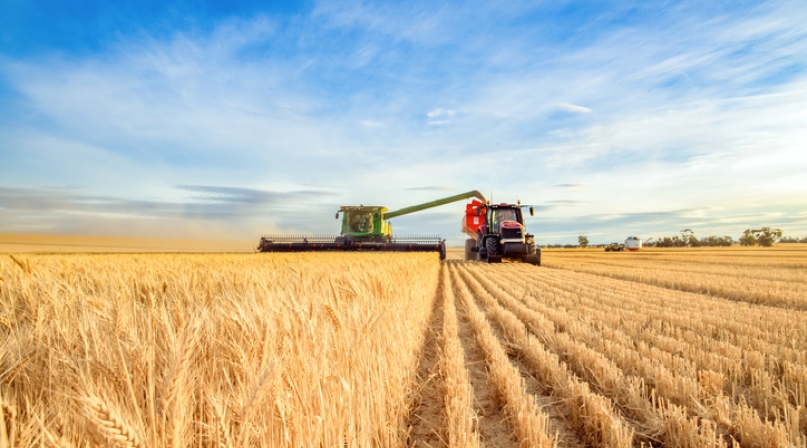NACo Releases County Priorities for the 2023 Farm Bill
Author

Owen Hart
Upcoming Events
Related News

Key Takeaways
The National Association of Counties (NACo), which represents all of America's 3,069 county governments, seeks to work with our federal partners to develop a substantive farm bill to strengthen federal resources that allow counties to make critical investments in our nation's most underserved populations.
The Farm Bill is critical for counties responsible for delivering and administering vital services to many of our nation's most vulnerable communities. From clean water and broadband infrastructure to nutrition assistance and energy conservation – the Farm Bill supports all of America's counties and provides a strong foundation for a better tomorrow. As a key intergovernmental partner, counties welcome the opportunity to work with our federal partners toward the passage of a bipartisan, comprehensive and long-term Farm Bill that achieves our shared priorities of invigorating rural communities, providing access to affordable and healthy foods and supporting farmers and ranchers that stimulate our economy and feed our nation.
Therefore, counties support the following priorities for the 2023 Farm Bill:
- Improve ease of access and flexibility of Farm Bill programs: Cumbersome regulations and statutory requirements restrict rural communities from accessing the resources they desperately need to thrive. Counties support legislative action to streamline application processes and reporting requirements for Farm Bill programs such as the ReConnect Program and the Rural Innovation Stronger Economy (RISE) Grant Program. Counties also support efforts to add additional flexibility for federal match requirements that force rural communities to secure additional funding before unlocking much-needed resources.
- Provide stronger support for small and mid-size producers: According to the USDA, small farm operations make up almost 90 percent of the nation's farms. Despite the vital role these producers play in their communities and local, state, and national economies, small farmers often struggle to access affordable sources of financing they need. An increasing number of these operations rely on off-farm sources of income to make ends meet. This trend has corresponded with a troubling decline in family farms. Counties support enhancements to resources, such as the Farming Opportunities Training and Outreach (FOTO) program, that support beginning, small, and mid-size producers.
- Advance comprehensive farm labor reform: Half of the nation’s hired farmworkers, roughly 1.2 million individuals, lack legal immigration status. Farmers and ranchers – both in rural and urban counties – depend on these workers, who are vital to the economic health of the United States agriculture sector. Counties support similar legislative actions to those under the Farm Workforce Modernization Act, which would reform the H2-A program and provide more flexibility for employers while ensuring critical protections for workers.
- Maintain and expand Farm Bill conservation programs: Protecting our nation's most sensitive ecosystems starts with the voluntary conservation efforts of American farmers, ranchers and foresters. Programs such as the Environmental Quality Incentive Program (EQIP), Conservation Reserve Program (CRP), Wetlands Reserve Program (WRP), and Conservation Security Program (CSP) provide valuable resources and expertise to support ongoing conservation initiatives. These programs, coupled with a strong local relationship with USDA's Natural Resource Conservation Service (NRCS), give local communities the support they need to take the lead in conservation efforts. Counties support maintaining or increasing funding levels for Farm Bill conservation programs that empower farmers and ranchers to voluntarily engage in conservation projects that serve the needs of their communities.
- Bridge the digital divide: Access to high-speed internet connectivity is critical to rural America's economic and social vitality. According to the Federal Communications Commission (FCC), approximately 14.5 million Americans lack access to broadband speeds of at least 25 Mbps download and 3 Mbps upload, with 11 million of these Americans residing in rural areas. Universal deployment of high-speed internet to rural counties would bring major benefits, including improved health care services through telemedicine services, increased ability for remote education and closing of the homework gap, and the promotion of quality economic development through the ability to support remote work opportunities. Counties support utilizing the Farm Bill as a mechanism to provide long-term funding support, including digital literacy, for the universal deployment and adoption of high-speed broadband services in rural America that will help build resilient and future-ready communities in the 21st century.
- Expand opportunities for rural entrepreneurs: The Farm Bill authorizes several important programs to catalyze rural communities' economic development and business creation. Counties support the maintenance or expansion of USDA Rural Business programs, including the Rural Economic Development Program and the Rural Innovation Stronger Economy (RISE) Program, that have empowered rural entrepreneurs across the country. Continued investment in these programs in the 2023 Farm Bill is crucial to securing new economic opportunities for rural communities.
- Invest in the capacity of rural counties: Rural counties and the communities we serve often lack the resources and expertise needed to access federal support. By investing in rural capacity building, Congress can ensure rural counties have access to the same community development resources already available to larger municipalities while being tailored to meet the specific needs of rural America. Counties support efforts to secure additional funding for rural capacity building in the Rural Development title of the 2023 Farm Bill. Robust investment in the expertise and capacity of rural counties will empower rural policymakers to plan and execute locally-led community economic development strategies.
- Close the wastewater access gap: The critical water and wastewater infrastructure deployment remains a priority for many rural communities. According to the Environmental Protection Agency, more than two million Americans lack access to basic running water. Despite this need, the cost of building, maintaining, and upgrading local water systems is a challenge for many small towns and rural counties. Beyond public health interests, clean and reliable water is a necessity to spur economic growth. Counties call on Congress to address rural Americans' water and wastewater infrastructure needs by increasing funding for USDA RD's Water and Environmental Programs (WEP) in the 2023 Farm Bill.
- Maintain SNAP funding levels, structure and eligibility: The Supplemental Nutrition Assistance Program (SNAP) provides nearly 40 million low-income individuals with monthly grocery benefits, functioning as a key support for vulnerable county residents. Counties support maintaining the current SNAP program and funding structure, including the 50 percent federal administrative match. Counties also support efforts to streamline SNAP to reduce burdens on administrators and recipients and create greater flexibility in SNAP work requirements. Additionally, counties call on Congress to ensure equitable and adequate benefits, improve healthy food access and develop solutions for rural SNAP recipients by addressing the specific obstacles that rural communities face.
- Elevate the county role in federal land management: County governments are a leading voice in the intergovernmental partnership with federal lands management agencies. The Forestry Title of the 2023 Farm Bill poses opportunities to build on the partnership between counties and federal land management agencies. Counties support efforts to expand federal land management authorities to allow more robust conservation and stewardship agreements with county governments. Counties also call for receipt sharing for Stewardship End Result Contracting and Good Neighbor Authority (GNA), allowing counties to reinvest revenue into other GNA forest management projects on non-federal lands, as states and tribes can do. In turn, counties support reauthorizing the Landscape-Scale Restoration (LSR) program.
NACo will continue to work with federal partners to ensure a new, long-term Farm Bill reauthorization that advances key county priorities is signed into law in 2023. Urge your members of Congress to support county priorities throughout the development of the 2023 Farm Bill.
Attachments
Related News

National Association of Counties Reinforces Intergovernmental Partnership in Response to State of the Union Address
The National Association of Counties (NACo) responded to President Trump’s State of the Union address with a statement from Executive Director Matthew Chase.

House Agriculture Committee chairman targets Easter farm bill passage
House Agriculture Chairman G.T. Thompson (R-Pa.): “Let’s face it — the 2018 policy was really great for 2018, but it’s no match for the challenges of 2026.”
